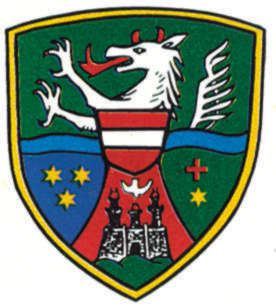THE PUNIC WARS: A Tale of Two Cities
Map (270 BC): (link)
Roman Senate: (link)
Punic Senate: (link)
GAMEPLAY AND RULES
scroll to the end for the TLDR
In this game there will be two playing fields: the city and the world. City actions happen in real-time; you should post in your respective senate threads to discuss world events with your fellow senators, propose and vote on laws, and react to city events. Occasionally I will post in your senate thread announcing an event. Events will almost always be the result of player actions. Very few NPC elements will exist in this game.
The world map, on the other hand, is turn-based. A new turn will be posted roughly once every three days, faster if I have time and am also inspired to do so. There will never be a new turn within 24 hours of the previous one, and within 48 hours of a turn there will also not be a new turn if I do not have actions in from all players. If 48 hours have passed, however, I will post a turn even if all actions are not in, so make sure to send something to me before 48 hours have passed.
THE CITY
Above are links to two different threads. Within them you may debate with your fellow senators and formulate laws for your city. You are the ones who must also police these laws. If a senator breaks a law it is up to his fellow senators to punish him. Such punishments can be of any kind you like. You can seize property, arrest and detain, or even execute other player characters. This assumes, of course, that you can capture them or their property. You must use soldiers to do any kind of action in this game, and the actions you can take are limited only to your creativity and the physical capabilities of your soldiers.
To take actions in the city which may lead to an event you must send a PM to me titled either "ROMAN ACTION" or "PUNIC ACTION" depending upon whether you are taking action in Rome or Carthage, respectively. There will be a mandatory delay of at least one hour before that action will result in an event. This is to give you time to reverse your decision. Once an hour has passed the action is committed and you may not edit it or stop it. You must have at least one character in the city to take actions in that city. You do not need to take actions to vote on laws, simply post your vote in the thread.
THE WORLD
Turns will be posted in this thread telling about things which happen outside the walls of Rome and Carthage, specifically things that relate to those two empires. Each turn will represent five years of time. Your characters will be represented on a world map by banners which you must choose for yourself. NPC nations will generally follow historical patterns and cannot be interacted with in any meaningful way beyond invasion. The numbers represent the size and prosperity of each settlement, which will determine how many soldiers may be recruited and how much money in tax revenue will be generated.
You should send a turn to me via PM titled simply "ATOTC" without anything else in the title. No turn number, player name, etc. Just ATOTC. Editing your turn is simple: just send another one. I will only read the last PM you send me titled ATOTC. I will not read your PM titled ATOTC until I am writing the turn, so pose any questions you have for me in separate PMs or in this thread.
ARMIES
There are three different types of soldier, each costing more than the last in upkeep. Volunteers receive no wage, you simply must pay for their food and portions of their equipment. They are easy to find in the larger cities which are not rebellious or conquered, but they lack skill and, without support by stronger troops, may become slaughtered easily.
Soldiers are either professionals who have been in the wars before or have purchased equipment with the hopes of joining an army. They too can be found in your largest friendly cities, and will fight with significantly greater skill than volunteers, but they are harder to come by and have higher wages.
Mercenaries can be found everywhere, even deep within enemy territory during a war. They have greater skill than soldiers, but are not loyal to your cause. While they certainly will not betray you in the middle of a war (they have a reputation to uphold!) they may be very wary of joining your army without a reasonable up-front fee and, also unlike other recruitables, will refuse to work for you unless you agree to hire on their entire company. Additionally, mercenaries may require a large leaving-fee when disbanded, depending upon how long they fought for you and how badly their casualties were recently. If the situation is dire enough, they may even demand compensation for lost soldiers.
Different kinds of troops may be hired or trained as well. For mercenaries the type varies depending upon the region you hire them from. For your other troops, Volunteers always start as velites (unarmored, untrained, armed with javelins) and soldiers always start as light, medium, or heavy infantry (chainmail, sword/spear, shield) of various types, or as cavalry (if they can afford a horse). Looting battlefields may result in velite volunteers upgrading to soldiers or soldiers upgrading their class to medium or heavy.
SHIPS
You may move across the sea by boat, but you may wish to have ships to escort your transports across. Any number of ships will do, but be warned: if an enemy has a fleet it will be ready to intercept you and your army may possibly be destroyed at sea. The shorter the distance your army has to cross and the further from enemy territory, the less likely you are to be intercepted and thus the less escorts you will need. Fleets will not be represented on the map, but they can still be given orders. You can either wait for the harbors of your nation to gradually build ships and put them up for sale or you can commission them to build for you.
CHARACTERS
Each player gets two characters. The last name will be consistent and chosen by you (your family name), but the first name will be randomly generated for you. Characters will be capable of holding armies. Armies cannot be garrisoned at any location without a character; wherever that character goes, so does his army until it is disbanded. When a character wins a battle they will gain a 'victory' which will be kept track of on their profile. More victories means more skill and, thus, greater chances of future victory.
Each family has a home and assets. Your assets will be displayed on a spreadsheet in each turn alongside every other player's assets. All assets, with the exception of mines and ships, are located in and around your nation's capital city (Carthage or Rome). You cannot move farms or industries nor can you own any outside of the capital. The "taxes" asset will go up once you become the governor of a city. The senate may (and should!) hand out governorships of cities via popular vote or by electing an individual to make that decision. Only one individual may be the governor of any given city and that individual will receive all of the taxes from that city.
Your home is where your treasury and unnamed family members are located. If you do not feel safe in the capital, you may wish to change your home to a new location. Your family can be killed off, and if you lose your two playable characters as well then you are out of the game. When you lose a playable character a new one will be generated for you on the following turn if your family still lives.
TLDR
PM city actions to me titled as "ROMAN ACTION" or "PUNIC ACTION" depending upon which city your action is happening in. You need soldiers to do almost anything in the city. PM world actions (turns) to me titled as "ATOTC" and send edits titled as the same, with all of your actions in the latest PM you have sent. Make laws and discuss matters of importance with other players in your city's thread.
You should now post in this thread naming your family and providing an image of your family banner.
The first turn (turn zero) will be published as soon as I have both of those from each participant. There is no need to send in a PM for turn zero, so don't do that. If you want a fitting family name I can provide a list of historical Punic and Roman surnames.













